Share
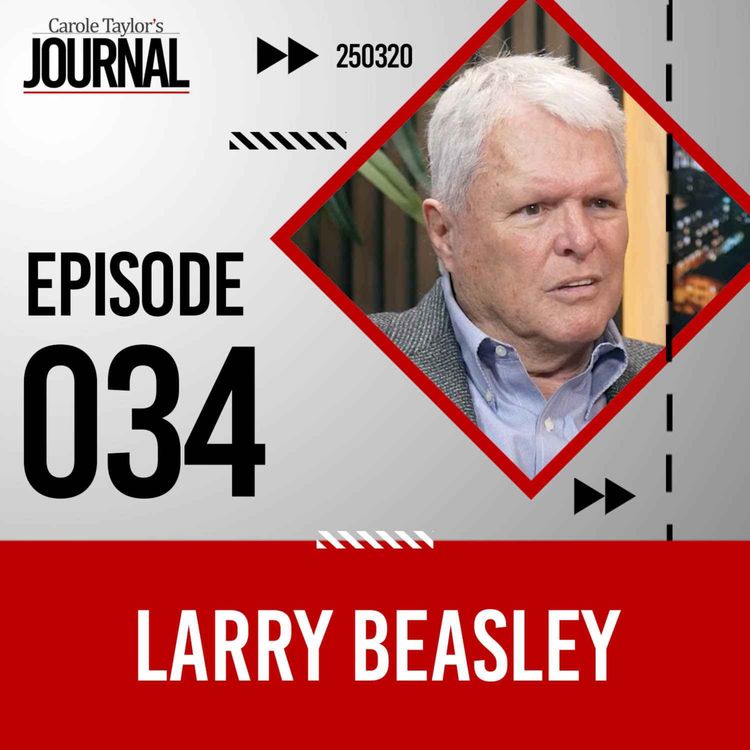
Carole Taylor's Journal
34 | Vancouverism Urban Planning (w/ Larry Beasley, urban planner)
In this edition of Journal, we wade into the fraught topic of city planning, density and affordability by examining Vancouver’s latest efforts to get more housing built – no matter what.
In the beginning, when the province mandated more density around transit hubs, people grumpily agreed, even though it was stomping on the right of municipalities to control their own zoning.
After all, having people live close to transit lines should lead to more people using the system, therefore making the massive infrastructure costs worthwhile.
Thus, the Broadway Plan allowed increased density and towers along the new rapid transit route.
But then Vancouver City Council went further by proposing to greatly increase the areas where this was allowed. It now encompasses many different character neighbourhoods, often at some distance from the transit corridor.
The idea that, without needing a rezoning process, anyone can build a 20-story tower next door has worried many city planners, architects, and community activists. Whatever happened to all the work that went into those individual neighbourhood plans?
Larry Beasley was one of 23 community leaders who wrote to Council, asking them not to pass this further expansion of the Broadway Plan and its towers.
However, the Council disagreed and passed the changes.
Larry Beasley is an internationally respected urban planner who, as Co-Director of planning for the City of Vancouver, helped develop what is now known around the world as Vancouverism. He is frequently asked to speak and advise on this urban planning concept.
More episodes
View all episodes
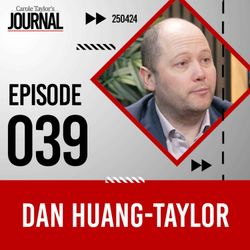
30. 39 | Food Banks Going Hungry (w/ Dan Huang-Taylor, Food Banks BC)
22:41||Season 2, Ep. 30On this edition of Journal, we look at how inflation and higher costs for just about everything, especially housing, are affecting British Columbians.Right at the pointy end of the stick are our food banks. They are among the first to sense when something is going very wrong. Usually when you say something has had a record-breaking year, it is a good thing. Not so with food banks.In the last 5 years, visits to food banks in our province rose 81%. One month topped 100,000 visits, the most ever seen since food banks first started some 40 years ago in this province.Even more concerning is the change in who is coming through the front door. More and more often, it is someone with a job, but a job that can no longer cover the costs of food and housing in BC. Towards the end of the month, many turn to our food banks for help in feeding their families.As well, according to Dan Levitt, BC’s Seniors Advocate, many older British Columbians are feeling the squeeze, trying to pay their rising bills on a fixed income. Sadly, it is often the cost of food that is one bill too far – thus they turn to our food banks as well.Food Banks BC is the provincial association of food banks; over a hundred hunger relief agencies belong. As executive director, Dan Huang-Taylor supports the mission to not only meet the emergency short term needs of British Columbians, but also work with others towards a hunger free community – a monumental task to take on.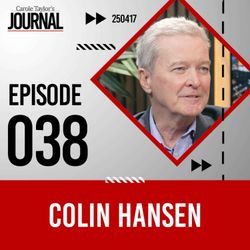
29. 38 | Breaking Down Trade Barriers (w/ Colin Hansen)
22:38||Season 2, Ep. 29On this episode of Journal, we try to understand the complexity of our interprovincial trade barriers – those infamous barriers everyone is now talking about. One man who knows something about this is Colin Hansen, one of British Columbia’s most accomplished politicians.In Gordon Campbell’s governments, he served as Minister of Health, Finance Minister, Minister of Economic Development, Minister responsible for the Asia Pacific and the Olympics, back to Finance after I left, and then was named Deputy Premier.One of his most challenging assignments was to tackle the interprovincial trade barriers between BC and Alberta.Today we have the prime minister, most premiers, and many business people responding to Trump’s ever-changing tariff threats by recognizing that it’s sometimes harder to trade with our own provinces than it is to do business with the United States – thus, the renewed call for free trade within Canada.Sounds good. I’m all for it, but it is not easy. I watched Colin Hansen struggle in 2006 trying to get a free trade agreement with just one province, Alberta.Why can’t our doctors, nurses, engineers, etc. automatically have their credentials accepted in every province?Whose standards for food safety or environmental requirements will be accepted?I remember during Colin Hansen’s negotiations, there was a moment when we ran into a roadblock – literally – over the size of truck tires, which are different in each province.So I applaud the words that are being said. It is the right thing to do. But turning those words into action will not be quick. Every province will have their own list of non-negotiables.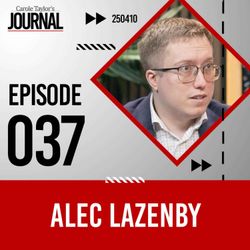
28. 37 | Columbia River Water (w/ Alec Lazenby, Vancouver Sun)
22:26||Season 2, Ep. 28On this edition of Journal, we take a close look at something we all take for granted: water. That is, we took it for granted until President Trump started talking about taking it away from us. This is particularly important for British Columbia since he has focussed on the mighty Columbia River, whose headwaters are north of Cranbrook. This is the faucet that the president suggests could be opened so that more of Canada’s water could flow to the US, helping with the drought and wildfires of California. Experts shake their heads at his concept – there is no faucet and the Columbia River doesn’t flow near to California. But politicians are paying attention. In 1964, after some pretty heavy negotiations, Canada and the United States signed the Columbia River Treaty, giving the two countries shared management of the river. Canada would build dams to control water flow, thus preventing flooding in Washington State. In return, Canada received 50% of the profits from the hydroelectric power produced downstream.Interestingly, Senator Jack Austin, who was involved in those negotiations, says that Canada got more than it deserved in that Treaty.As it stands, more than 40% of US hydroelectric power comes from this Columbia River system. So you can see why it has caught the President’s attention.The Treaty was due to be renegotiated last year but try as they might, to have a new deal ratified before the change in presidency, it didn’t happen. As a result, there is plenty of uncertainty about how aggressive the US will now be to change the deal to their advantage.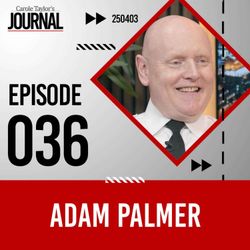
27. 36 | Policing in Vancouver (w/ Chief Constable Adam Palmer, Vancouver Police)
22:45||Season 2, Ep. 27On this edition of Journal, we take a look at the dramatic changes we have seen in policing in the last few decades through the eyes of retiring Chief Constable of the Vancouver Police Department, Adam Palmer.1987 was the year Adam joined the VPD, becoming Chief Constable in 2015. He leaves as the longest serving Chief in the department’s history. Just imagine how the streets have changed over those four decades.In ’87, Vancouver was coming off the high of Expo ’86. There was a feeling of pride in our step; after all, we invited the world to our beautiful city. Of course there was a darker crime story as well, but not like today. Now, we are experiencing new and seemingly intractable and overlapping problems. Despite recent data indicating violent crime is actually declining, that’s not how it feels. We have an area of Vancouver that is almost a no-go zone, with homelessness exacerbated by drug addiction and mental illness.How has our police department had to adapt to these challenges? How has their mandate expanded? What should we be thinking about from a public policy point of view going forward?Sir Robert Peel, thought to be the father of modern policing, believed in the principle that “we don’t police the community, we police WITH the community”. That has been a hallmark of Adam Palmer’s time as Chief Constable.At his retirement announcement he said, “This career is full of ups and downs, various crises, challenges, laughter and tears, but it’s also incredibly rewarding and I would do it all over again, in a heartbeat, without thinking twice.”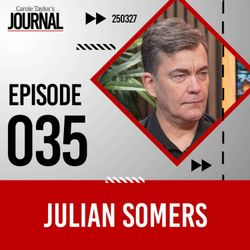
26. 35 | Supportive Housing (w/ Julian Somers)
22:43||Season 2, Ep. 26On this edition of Journal, Dr. Julian Somers joins me to examine the need for a province-wide plan to support those with Complex Co-occurring Disorders, or CCDs. This refers to those individuals with substance abuse and mental disorders at the same time. The care required is complicated, involving “medical, psychiatric, housing, social and legal issues,” according to a paper co-written by Dr. Somers. Mayor Ken Sim of Vancouver shocked many when he announced the city would no longer permit net-new supportive housing. On the surface, this seems crazy when we see the homelessness on our streets, the criminality, and the crying need for mental health support. How could we say no to more supportive housing? However, surprisingly to me, Dr. Somers sent a letter of support to the mayor, complimenting him on this initiative to put the brakes on more supportive housing in Vancouver. As a licensed clinical psychologist specializing in addiction who has worked in this field for 37 years, one would expect him to say give us as much supportive housing as you can. His perspective on what we are doing wrong is illuminating. Why are we concentrating so much of our support systems and services in the Downtown Eastside of Vancouver?Why are rural areas so under-serviced that people feel they must come to Vancouver to get help?Why do we see crime and violence increasing in these areas rather than decreasing despite the concentration of services?Perhaps we are offering the wrong kind of support in the wrong places?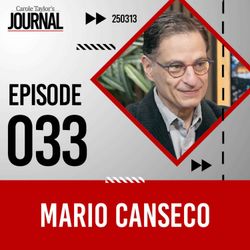
24. 33 | Polling and Pollsters (w/ Mario Canseco)
22:41||Season 2, Ep. 24In this edition of Journal, we take a close look at the art of pollsters. You know – if you want to know what your neighbours are thinking, or what Canada is thinking, ask a pollster. Poillievre is ahead of Trudeau by 20 points. Or now Carney is ahead, maybe. Or 45% of Americans think Trump is doing a swell job. And then we remember 2016, when the majority of American pollsters said with confidence that Hilary would win the election. Then she didn’t. Whoops.Since that time, much self-examination has been going on in the world of pollsters. Who is your sample? How do you reach people when many don’t have a landline anymore or don’t answer their cell when they don’t recognize the number? Or how about those cagey folks who give the wrong answer just to complicate the results?So, like it or not, polls play a big role in how we see the issues of our time.What intrigues me is what the pollsters see behind the numbers. After all, they are looking at these questions over and over. What trends are they identifying? What changes are happening? What does it mean?Mario Canseco is president of a well-respected and often quoted Canadian company, Research Co. He looks beyond the obvious question of which party are you going to vote for. He wants to know the why and who you are. A senior? A young man? Someone in the sandwich generation caught between raising a family and caring for aging parents?And how do you capture in numbers the worries and uneasy feelings of the average Canadian? That’s where the analysis comes in.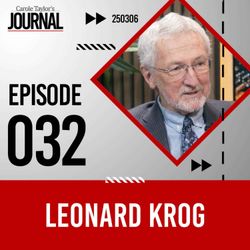
23. 32 | Hell in the Streets (w/ Mayor Leonard Krog)
22:36||Season 2, Ep. 23In this edition of Journal, we examine the “horrors that exist on our streets.” That phrase was used by Leonard Krog, the mayor of Nanaimo to describe what he sees every day in his city.Others use the euphemism “the disorder in our streets.” But whatever you call it, it certainly denigrates the liveability of so many communities – and it started way before decriminalization.All across North America, not just in British Columbia, there was a movement in the 1970s, away from institutionalized care for the mentally ill, in part as a result of the movie “One Flew Over The Cuckoo’s Nest.”That was a terrifying tale of abuse that no one would support.However, rather than ask how we could improve the way we care for the severely mentally ill, it was broadly decided that almost no one should be in secured care. Thus, Riverview was closed. A huge mistake, in my opinion.I realize that the percentage of those who are severely mentally ill and in need of help is small, but to think these individuals would be able to cope on their own, find housing, remember to take their meds, eat properly and be safe is absurd. Instead, so many have become the victims of drug dealers and pimps.So now, this vulnerable population has to deal with a decriminalization experiment that has increased the public use and abuse of drugs. The drugs are stronger, overdoses are frequent, brain damage too often the consequence. And still there are those who hear of the violent stranger attacks or see individuals lying on the streets in a desperate state but continue to argue against secured care.Mayor Leonard Krog isn’t one of them. He has been outspoken about the need for a new approach.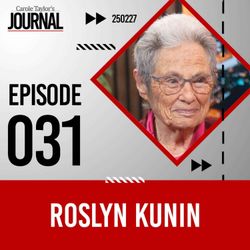
22. 31 | To Tariff or Not? (w/ Roslyn Kunin)
22:43||Season 2, Ep. 22In this edition of Journal, “To Tariff or not to Tariff – that is the question.” With apologies to Hamlet, but it is what people are talking about. Whatever you think of him, President Trump has certainly turned the status quo upside down. From his point of view, it works.By simply threatening to apply tariffs to all Canadian goods if we didn’t take action on our border and fentanyl issues, our prime minister and premiers sprung into action. Helicopters to the border, more raids on mega drug labs! Drones in the air!But how will we respond to actual tariffs?Canadian politicians and economists have had various ideas: We’ll match your tariffs dollar for dollar – or we will target sectors that Americans care about the most.Our NDP premier floated the idea that we would take liquor and wine off British Columbia’s shelves if they came from red Republican states. I guess that means Kentucky bourbon is out and California wines are in!While one can’t give in to bullies, it is fair to ask some questions.Will retaliatory tariffs work, stop a trade war and change President Trump’s mind? Or just up the ante?And who pays the cost? Consumers on both sides of the border, I would say.One economist has written an essay titled: “Tariff retaliation is a dead end.” Canada needs to retool its economy, not chase self-defeating tariffs. That economist’s name is Dr. Roslyn Kunin.Roslyn is an award-winning labour economist and forecaster who has taught at both UBC and SFU. Amongst her many career accomplishments, she served 20 years as Regional Economist for the federal government.